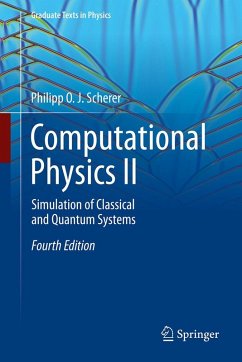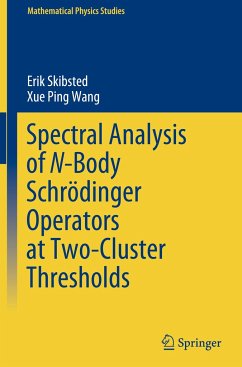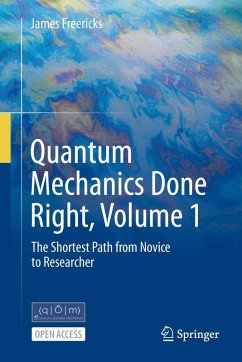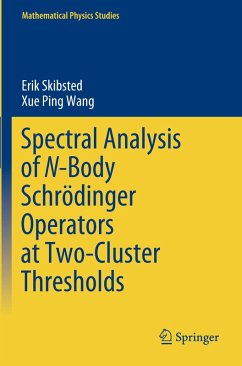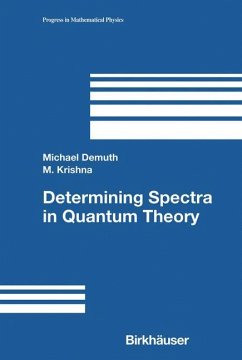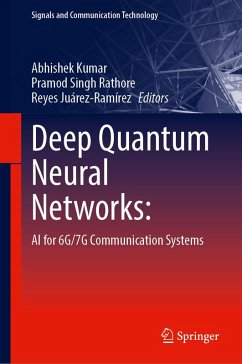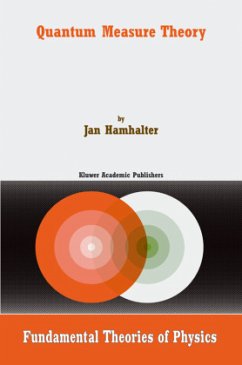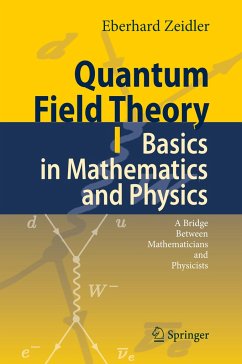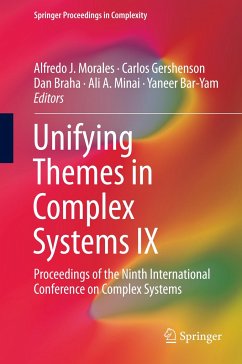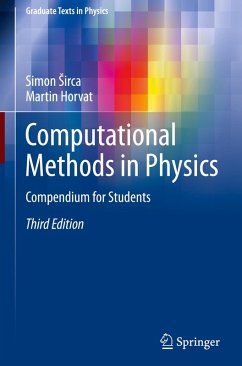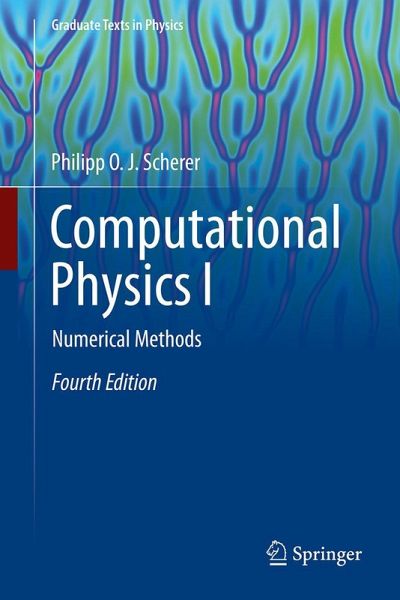
Computational Physics I
Numerical Methods
Versandkostenfrei!
Versandfertig in 6-10 Tagen
76,99 €
inkl. MwSt.

PAYBACK Punkte
38 °P sammeln!
This book presents basic numerical methods and applies them to a large variety of physical models in multiple computer experiments. Authored by a distinguished expert in the field, it combines rigorous theoretical insights with a wealth of practical and easily accessible computational applications. This book serves as an ideal standalone text for computational physics courses at both the graduate and advanced undergraduate levels. It offers a detailed and cohesive exploration of the physics of classical and quantum systems, electrostatics, thermodynamics, statistical physics and nonlinear syst...
This book presents basic numerical methods and applies them to a large variety of physical models in multiple computer experiments. Authored by a distinguished expert in the field, it combines rigorous theoretical insights with a wealth of practical and easily accessible computational applications. This book serves as an ideal standalone text for computational physics courses at both the graduate and advanced undergraduate levels. It offers a detailed and cohesive exploration of the physics of classical and quantum systems, electrostatics, thermodynamics, statistical physics and nonlinear systems, integrating foundational principles with advanced simulation techniques.
The significantly expanded and updated fourth edition comprises two volumes. Volume 1 is dedicated to numerical methods, covering essential topics such as error analysis, numerical differentiation and integration, Fourier transforms, time-frequency analysis, and data fitting. Alongside this, it presents essential computational methods such as Monte Carlo techniques and solving Newton's equations of motion, equipping readers with the tools necessary for practical problem-solving in computational physics. New in this book is an introduction to artificial neural networks (ANNs) for elementary tasks such as classification, regression, interpolation, time series analysis and principal component analysis. It features methods for solving differential equations with ANNs, including a discussion on the concept of automatic differentiation as a necessary alternative to analytical, numerical, and symbolic differentiation. These additions offer readers deeper insights and more robust tools for their studies and research.
The significantly expanded and updated fourth edition comprises two volumes. Volume 1 is dedicated to numerical methods, covering essential topics such as error analysis, numerical differentiation and integration, Fourier transforms, time-frequency analysis, and data fitting. Alongside this, it presents essential computational methods such as Monte Carlo techniques and solving Newton's equations of motion, equipping readers with the tools necessary for practical problem-solving in computational physics. New in this book is an introduction to artificial neural networks (ANNs) for elementary tasks such as classification, regression, interpolation, time series analysis and principal component analysis. It features methods for solving differential equations with ANNs, including a discussion on the concept of automatic differentiation as a necessary alternative to analytical, numerical, and symbolic differentiation. These additions offer readers deeper insights and more robust tools for their studies and research.



